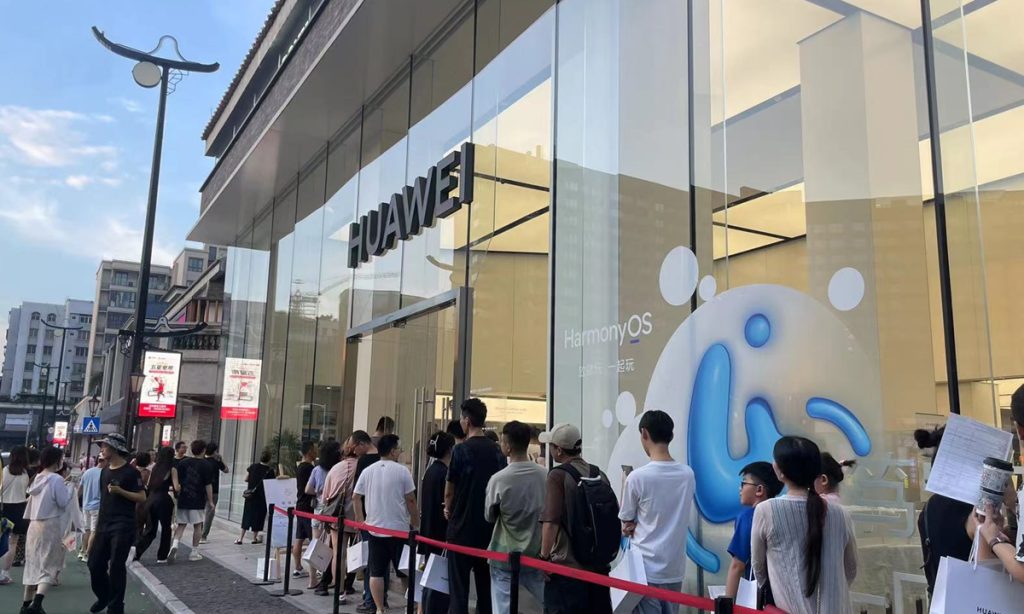Huawei’s success: beyond tech, about values

At the end of 2019, I accompanied an American and German media delegation to the offices of Chinese tech giant Huawei. Although it was only for one day, this brief encounter gave me a deeper understanding of this company.
In May of the following year, when Washington imposed a severe embargo to cut off the supply of high-end chips to Huawei, the Americans had actually done something stupid. In doing so, they were pushing the Chinese company to develop its own chips more quickly.
How did Huawei get to where it is today? During that visit, American and German media colleagues didn't seem to care about that question. Instead, they repeated queries about Huawei's relationship with the Chinese government and what level of technology the company had reached. After Huawei's mobile phones broke through the limitations of 5G chip technology, I've been thinking: If Washington could start to understand this Chinese tech giant from a spiritual level rather than just speculating on Huawei's technology and relationship with the government, perhaps it wouldn't have made that decision to embargo the company.
However, the Americans will not view this Chinese company in this way because what they despise most in their bones is the spirit of the Chinese people.
Washington has never considered giving China's rise and the development of made-in-China equal status. They feel threatened by the competition and believe that China is still copying or following US technology. As long as the containment of critical technologies is in place, the US believes it can stay ahead of the competition. This traditional view about the Chinese is full of ideological bias and causes Washington to underestimate Huawei's capabilities. So much so that some US experts were anxious and even shocked to learn that the Chinese company's new mobile phones used homegrown chips.
I remember during that visit, Huawei Chairman Liang Hua, after briefly introducing his company's development, suggested foreign journalists read about the 32-year long history of the company. Fortunately, I was given a book on Huawei's history, and learned about the company's development process and the struggles of many Huawei employees worldwide.
It was revealed that in 2009, when Huawei had more than 100,000 employees, about 1,400 of them were flying somewhere every day. A middle manager from Huawei said that whenever there are plane crashes or disappearances, he prays that no employees from his company were involved.
Any Chinese individual who visits Huawei's offices will likely feel a strong sense of spirituality through the company's products and technologies. Behind Huawei's widely talked about "wolf culture" lies not a barbaric struggle but a set of modern enterprise payment systems closely linked with the norms of a market economy. The company, which has thrived in China's economic system, has a business model that fully harnesses the spirit of entrepreneurship and the pursuit of wealth, characteristics often associated with the Chinese people.
Chairman Mao Zedong wrote in a poem that nothing is impossible if you have a willing heart. While the Americans may be able to restrict the supply of chips, they cannot suppress the determination of Huawei employees and the Chinese people's spirit to fight for a happier life. Spirit is certainly not everything, but without it, nothing is possible. Made-in-China has come so far that it is inseparable from the traditional spirit of struggle that the Chinese people have, and this spirit is closely related to the concepts of the Chinese people's treatment of work, family and children's education.
Reform and opening-up have provided abundant opportunities for the Chinese people to pursue their dream of poverty alleviation and enrichment. This has also been their source of motivation to pursue wealth, which has been nurtured by the history of Chinese culture and the survival and development of the Chinese people. Any assessment or prediction of China's economy divorced from this point is bound to be misinterpreted and misjudged. By the same token, as long as China's future reform and opening-up revolves around how to continue to unleash this vitality, it will undoubtedly be able to walk out of a new path of modernization.